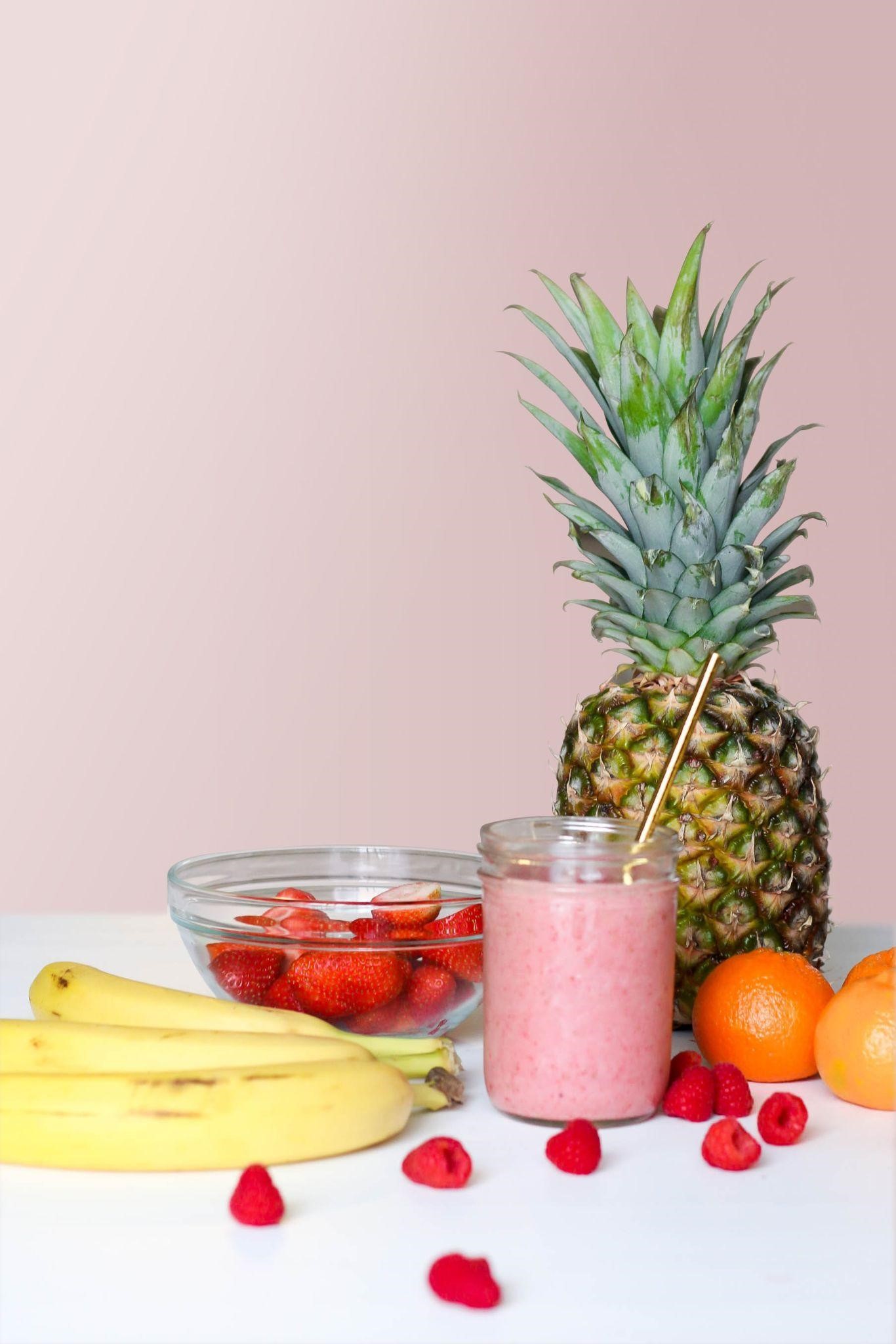Are you looking to boost your performance, enhance your recovery, and improve your overall health and fitness as a runner? Well, a crucial aspect to focus on is your pre- and post-run nutrition.
Neglecting what you eat before and after your runs is akin to heading out on a road trip without enough fuel in the tank – you won’t get far. What you consume and when you consume it can be just as important as your training regimen.
In this comprehensive guide, I’ll delve into the significance of addressing your nutritional needs before and after your training sessions. I’ll also provide you with an extensive list of pre-run and post-run meal and snack ideas to fuel your runs effectively.
However, it’s worth noting that the strategies outlined here may not be the best fit if your primary goal is weight loss. For weight loss-oriented eating plans while running, please refer to my weight loss page. Additionally, consulting with a dietitian for a personalized eating plan that aligns with your specific body composition is always a wise choice.
Let’s embark on this journey to optimize your runs and overall fitness – no emojis needed!
Pre-Run Nutrition For Runners – Meal Ideas
Getting your pre-run nutrition right is like giving your car the best fuel for a long road trip – it’s essential for peak performance. Just as the frequency and intensity of your runs matter, so does what you eat before hitting the pavement.
But there’s more to it than just energy. Research indicates that proper pre-training nutrition can help stave off low blood sugar and its unpleasant symptoms. These can include dizziness, fatigue, fuzzy thinking, and even blurred vision – not exactly the kind of companions you want on your run.
How Much Food to Eat Before a Run?
So, how much should you eat before lacing up your running shoes? Well, it’s not a one-size-fits-all answer. Your ideal pre-run meal depends on a few key factors: the intensity and length of your run, your fitness level, and your personal digestion preferences.
Here’s the deal: The size of your meal impacts how long it takes your digestive system to work its magic. A quick snack can be digested in less than an hour, a small meal might take one to two hours, and a larger meal could require up to three to four hours to fully process.
It’s like a finely tuned machine – finding the right balance ensures you have the energy you need for your run without any uncomfortable side effects.
Training Intensity and Food Choices
When it comes to your training intensity and food choices, it’s all about matching your fuel to your workout. Whether you’re hitting the 400m track or tackling a challenging hill, any run that drains your energy requires some pre-run nourishment.
As a general rule of thumb, if you’re gearing up for a moderate to intense workout – think 5K pace or faster – you’ll need some energy in your tank. For most runners, a small meal consumed two to three hours before your run or a hearty dinner the night before should do the trick.
Now, if you’re planning an easy run, say 30 minutes or less at a relaxed and comfortable pace, you might get away with just a glass of water – especially if you’re already practicing healthy eating habits.
Alternatively, you can experiment with exercising in a fasting state if that works for you.
But what if you need a quick energy boost? In that case, reach for a light snack like a banana, an energy drink, or some revitalizing orange juice.
And if the idea of a full breakfast before a morning run isn’t your cup of tea, consider options like a small piece of fruit, a nutritious smoothie, a hypertonic sports drink, or a hearty, energy-rich dinner the night before to fuel your run.
Pre-Run Meals – The Right Choices
Here are some of the foods and snacks I eat before my runs to help keep me energized without weighing me down.
- Banana or apple with nut butter
- Two whole eggs with peppers, low-fat cheese, and onions
- Smoothie
- Greek yogurt with berries
- Oatmeal with fruit and low-fat milk
- Oatmeal with whey protein
- Jelly toast and peanut butter.
- Half a cup of brown rice with black beans
- Half a cup of oatmeal with berries and agave.
- Apple with a serving of walnuts
- Sweetened potato with steamed broccoli in olive oil
- Salad with roasted chickpeas and vinegar
- Burrito with beans and brown rice
- Banana with almond butter
- Quinoa bowl with pecans and blackberries
- Multi-grain crackers with hummus
- Multi-grain bread with raw peanut butter.
- Protein shake with one scoop of protein powder and a banana.
- Dark chocolate
- Yogurt and raisins
- Energy gel or energy bar.
- Apple and peanut butter
- Whole grain bread and almond butter
- Carrots and cheese
- Veggies and hummus
- Bagel with cottage cheese
- Banana and chocolate milk
- Yogurt and almonds
- Trail mix of dried fruit and nuts
- Crackers and cottage cheese
Post Run Nutrition For Runners – Meal Ideas
Post-run meals are not to be taken lightly; they play a crucial role in your recovery and overall training benefits. Neglecting the significance of what you eat after a run can result in feelings of fatigue, subpar performance, sugar cravings later in the day, and a less effective recovery.
By nourishing your body with the right nutrients in your post-run meal, you’re essentially continuing the recovery process, providing your body with the essential building blocks it needs to recuperate and thrive.
The Right Mix
Research published in the Journal of the International Society of Sports Medicine highlights the importance of consuming a combination of carbohydrates and protein immediately after exercise.
To optimize your post-run meal, experts recommend a ratio of 3:1 to 4:1 of carbohydrates to protein, although this can be adjusted based on your individual preferences and needs.
While the timing doesn’t have to be precise to the minute, it’s generally advised to consume these macronutrients within 30 to 45 minutes after your run for optimal results. Research has shown that delaying carbohydrate intake by more than two hours after exercise may lead to a significant reduction in glycogen synthesis, which is your body’s process of replenishing energy stores, by up to 50 percent compared to eating right after your workout.
Post Run Meals – The Best Choices
I highly recommend chocolate milk as an excellent option for post-run recovery. It provides an ideal combination of carbohydrates and protein to replenish your energy stores and support muscle repair.
Additionally, the high water content in chocolate milk helps replace the fluids lost through sweating and respiration during your run.
Furthermore, chocolate milk is rich in essential minerals, including calcium, which is crucial for maintaining healthy bones and supporting energy metabolism. It’s a delicious and convenient choice that can help you recover effectively after your run
Here are more easily digested post-run meals and snacks to experiment with:
- Fruit and low-fat milk smoothie
- Grilled chicken with roasted veggies
- Salmon with sweet potato
- Smoothie made with low-fat milk and fruit
- Oatmeal with banana and almond butter
- Cereal and skim milk
- Tuna salad sandwich on grain bread
- Cottage cheese and fruit
- Almonds and a piece of fruit
- Baked salmon and asparagus
- Whole grain toast and almond butter
- Sweet potato with cottage cheese
- Low-fat chocolate milk
- Yogurt with berries
- Whole-grain bagel with egg whites
- Pasta with chicken, eggplant, and broccoli
- Egg white and spinach omelet
- Pita and hummus
- Vegetables and hummus
- Whole grain cereals with banana and milk
- Protein sports bars
- Oatmeal, whey protein, almond, and banana
- Turkey on a whole grain wrap with vegetable
- Apple with almond or peanut butter.
- A handful of raisins and nuts
Everybody is Different
Absolutely, it’s essential to understand that when it comes to meal timing and nutrition, there’s no one-size-fits-all approach. Every individual is unique and may respond differently to various foods and eating schedules. It’s all about experimentation and finding what works best for you in terms of performance, enjoyment of your training, and personal preferences.
So, if you’re hitting the running track after work, consider having a small pre-run snack like a banana with all-natural peanut butter or any of the snack options mentioned earlier.
However, feel free to choose your own healthy snacks that align with your preferences and needs. Remember, there’s no universal solution, and the snack ideas provided are simply suggestions to get you started on your journey to optimal nutrition for running.
Pre and Post-Run Nutrition – To Conclude
Today’s article is by no means the full guide to proper fueling for runners.
Performance nutrition is a very complicated topic, and it goes beyond my limited expertise.
I’d love to hear from you in the comments section.
In the meantime, thank you for dropping by.
Keep Running Strong.


